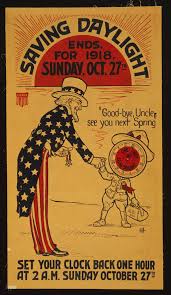Changing Time
/The time changed this past weekend and we are supposed to be enjoying an extra hour of sleep each night. Instead, my body refuses to adjust and I’m just up early. Every time the clocks have to change to accommodate Daylight Savings Time I have to adjust – well we all do, don’t we?
As I began to think of Daylight Savings Time from an historical perspective I did a little research and found that I really did not know the history at all. “Fast Time” was implemented during World War I to save lighting fuels for the war effort. I had thought the concept was much older and had been designed to support the Industrial Revolution.
I’m always fascinated when I see old factory buildings with their numerous tall windows that remind me they were built and used before the rows of fluorescent lighting we’re so accustomed to in commercial buildings now. Its’ not hard to imagine the importance of sunshine during working hours in those buildings. Often you see the big arched spaces have been filled-in either with plywood or brick as they are now more of a security concern than a necessity.
In the Tennessee mountains however factories were of little concern as the hours of sunshine shortened with the approach of winter. The schedule on a farm is set by the sun and the weather instead of a clock. My daddy always said a dairyman should start his milking about 4 a.m. As I think about that rule I suspect the time was more because many modern farmers work a public job and have to finish their milking in time to get to work. On an earlier farm with no electricity, why would you go to the barn before daylight? Coal oil was a precious commodity that cost hard earned pennies, it would not be burned to light chores that could be just as easily accomplished in another hour.
We always think of farm families going to bed with the chickens. Certainly after a day of hard physical labor you’re ready for a good night’s sleep, but as I think about this lighting issue I’m betting that was a big factor too.





